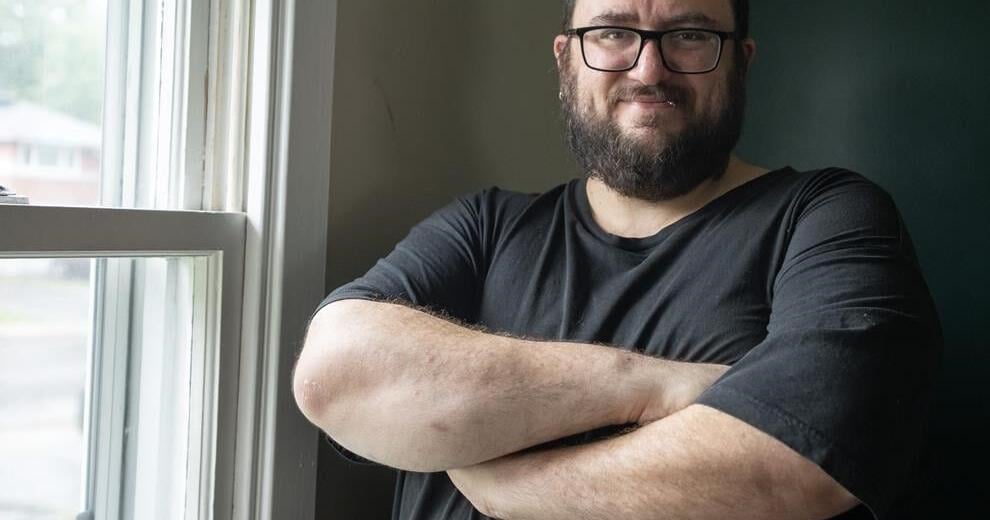MONTREAL – Lately, Karine Boudreau has toyed with the idea of quitting. For most of her 18-year career as a school psychologist, the thought of doing something else never crossed her mind.
But in the last four years, she’s been feeling stretched too thin to do right by the students.
“The satisfaction in my job is harder to find. The workload has increased a lot,” she said. “Do I continue? Am I going to be able to reach the end of my career in this environment? I think about it.”
As students across Quebec head back to school next week, the province is staring down an intractable staffing shortage: more than 3,800 teaching positions remained unfilled as of Wednesday.
But it’s not just teachers who are hard to find. Special education technicians, daycare workers, psychologists and speech therapists are all in short supply. And while the Quebec government insists it’s taking steps to improve the situation, staff and their unions say the problem won’t be fixed until schools once again seem like desirable places to work.
This year, Boudreau will be serving two high schools in Drummondville, Que., a town of about 80,000 people between Montreal and Quebec City. One of them hasn’t had access to a school psychologist for the last three years. She’ll be there just one day a week, and she’s worried she won’t be able to meet the students’ needs, which can range from anxiety and eating disorders to learning difficulties and autism.
It’s a far cry from how things were when she started out nearly two decades ago. Back then, she said, she could work five days a week at a single school. Now, elementary school psychologists in her board often cover six or seven schools each.
Boudreau said the student population in Drummondville has grown over the years, partly due to immigration, but the number of support staff hasn’t kept pace. The result, she said, is that the most urgent cases get attention, and students with less pressing needs end up on wait-lists, sometimes for several months.
“As a professional, I don’t have the feeling of being effective … or following through on everything I could or would like to do,” she said.
Boudreau isn’t alone. Jacques Landry, president of the Quebec federation for education professionals, said a survey last year found 40 per cent of professionals in the education system – including psychologists, counsellors and speech therapists – were thinking of leaving. “That’s enormous,” he said.
Landry estimates there are 1,500 to 2,000 vacant positions for professionals across the province heading into the school year. The federation for school support staff says there are another 3,450 empty spots for school daycare workers and more than 1,200 unfilled positions for special education technicians.
That’s on top of the 3,800 teaching positions that Education Minister Bernard Drainville said Wednesday have yet to be filled. Drainville said an influx of 20,000 new students in the province’s schools this fall, partly driven by immigration, has put more strain on the system. “The goal is to have a teacher in every class for the start of the school year,” he said.
The province has turned to non-legally qualified teachers to help fill the gaps, and a 30-credit fast-track program now exists to certify new teachers more quickly. Drainville has not said how many uncertified teachers will be in classrooms this year.
Jonathan Keane, a visual arts teacher at Beaconsfield High School on the Island of Montreal, said he’s worked at some schools that haven’t been able to fill teaching positions through the full academic year, and end up with a “rotating door” of different people teaching the same class. He also said it’s common for full-time teachers to fill in for colleagues who are off sick because substitutes can’t be found.
“It’s tough for students because they don’t have the consistency,” he said. “They go into class and they don’t know who’s going to be there, and they don’t know what’s going on.”
Keane, who’s been teaching for 13 years, said when he started out, teachers took whatever positions they could find. Now, it’s a different story. Of the 20 people in his graduating class, he said, he only knows of three who are still teaching.
If the government wants to fix the shortage, Keane said, teachers need higher pay and better conditions. “It takes a special kind of person to want to be a teacher,” he said. “But, you know, those people are out there, and we see them coming in and not wanting to stay.”
Last winter, a four-week teachers’ strike shut down about 800 schools in Quebec and yielded an agreement that included a 17.4-per-cent pay increase over five years. Nicolas Prévost, president of the Quebec federation of educational institutions, said the deal should make teaching more attractive – eventually.
“We won’t see the effect of that in the short term,” he said. “We’ll see it in three or four years.”
For the time being, he said, even principals can end up in classrooms filling in for teachers who are off sick. In a few schools, nearly half of the staff are not legally qualified, Prévost said, and they’re often not getting proper supervision. “They need support and we have a hard time giving it to them,” he said. “Certainly that has an impact on the service provided to students.”
Back in Drummondville, Boudreau said she’s always loved working in the school system, and never wanted to go elsewhere. But now, she’s not so sure. “It’s less satisfying,” she said. “I admit that sometimes I have trouble finding that spark.”
This report by The Canadian Press was first published Aug. 22, 2024.
